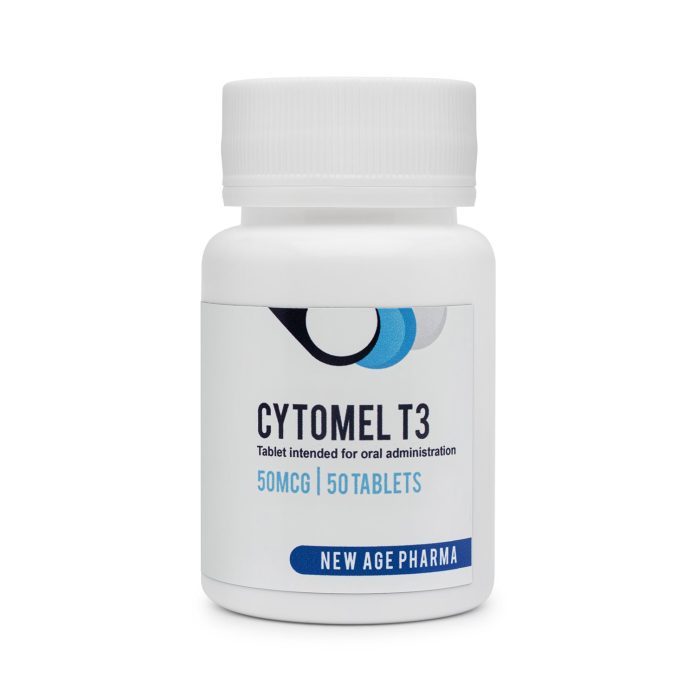Cytomel is also known as Liothyronine and it can be used by children and adults to help them with thyroid issues. The main target is for those that have an underactive thyroid. This means the body isn’t creating enough of the substance that it should for normal growth and hormone balance. This is a synthetic medication, and most people respond to it very well.
The body isn’t able to differentiate between Cytomel in the system and what it would normally product on its own. This is encouraging as someone with an underactive thyroid may struggle with chronic fatigue, they may not grow properly, they may gain weight, and they may have muscles that are weakened. Seeking treatment can help them to feel better and to get weight under control.
This medication can be taken during pregnancy. It isn’t going to harm the fetus or the mother to do so. It can also be taken by mother’s who are breastfeeding. The medication won’t harm a baby through the milk. However, your doctor should be informed as soon as you know you are pregnant or if you are nursing. They may need to make some adjustments to your dose in order to ensure your health needs continue to be met.
Individuals taking this medication will need to have regular lab reports completed. Ideally, this is conducted every six months. This is to verify the thyroid is functioning at a level that is successful and the liver isn’t being harmed. If your doctor considers you high risk, the testing may be requested every three months.
It is important to keep scheduled appointments for these labs to be conducted. Failure to do so will often result in the prescription not being refilled until you are in compliance and the doctor has the results. This can result in the body not getting any Cytomel for a period of time, and that can allow your thyroid function to get out of sync again.
What is it used for?
The most common use for Cytomel is to help regulate the thyroid gland in the body. When a person has an overactive or underactive thyroid, it can create an array of health issues for them. This product tricks the body into thinking it is producing what it should, and that gets it all back in balance. This medication doesn’t cure issues with the thyroid though, and a person tends to need to take it ongoing. Should they stop, the symptoms will come back.
When a child isn’t producing enough of what it should through the thyroid gland, it can cause them not to grow properly. This medication can help them to continue to grow like they should. The sooner such a diagnosis is confirmed, and medication introduced, the less suppression of overall growth the child will experience.
Sometimes, infertility is the result of an underactive thyroid issue. If the person is otherwise healthy, they may be given Cytomel for a period of time. This can help to regulate the thyroid and allow fertility to happen naturally. It is often worth trying before pursuing IVF. Your doctor will be able to help you determine if there are other factors they feel prevent you from being fertile at this time.
There are individuals with various forms of thyroid diseases. This can include cancer of the thyroid. In such instances, the medication may need to be taken as a way to aggressively fight the problem. It is taken in conjunction with other medications. The length of time will vary on the diagnosis and how well the patient is responding to their treatment plan.
Recommended Dosage
The amount of Cytomel a patient is going to take depends on the diagnosis as well as their age. The goal is to offer the lowest possible dose but still get the best results. The doctor may start it at a low level to see how the patient responds. Then they can increase the dose over time if they need to. The dose should only be changed by a doctor.
Don’t stop taking Cytomel without their consent. Don’t skip doses just because you feel better. Doing so can prevent the medication from working consistently like it should. A patient may need to take this medicine for several weeks before they start to notice any improvements. Make sure you share with your doctor how you feel and keep all follow up appointments.
When a patient needs to take it ongoing, the dose is typically going to be lower than if they are fighting a disease or cancer. For the best results, Cytomel should be taken at the same time each day. Make sure your doctor is aware of any other medications you take with it. This includes over the counter and herbal medicines. This also includes anything you take with a prescription. Some of them can reduce the ability for the Cytomel to be absorbed correctly.
Others, including magnesium, and antacids should only
be taken at least four hours prior to the use of Cytomel. Your doctor can help
you develop a schedule that works well for you. It can be taken with food or on
an empty stomach. If you experience nausea, taking it will food can prevent that
from happening. Make sure this medication is stored in a dry, dark location. It
shouldn’t get moisture around it. Direct sunlight can reduce the potency of
this medication.
What are the Possible Side Effects?
The higher the dose of Cytomel, the more the risk of various side effects increase. The body tends to get used to this medication after a few weeks. The side effects should lessen or go away after that amount of time. If they continue, make sure you share this information with your doctor. It may be necessary for them to alter the dose or to change your medication for a thyroid related issue.
Some patients notice hair loss during the first couple of weeks using Cytomel. It isn’t anything to be alarmed about, and the hair will grow back soon. Children tend to experience hair loss more often than adults with the use of this medication. If you start to notice your hair is thinning or you have bald patches, let your doctor know right away. You may find you are sensitive to heat, including UV rays from the sunlight.
Other common side effects include:
- Diarrhea
- Dry mouth
- Headaches
- Insomnia
- Menstrual cycle changes
- Sweating
Make sure you tell your doctor right away if you experience any serious side effects while taking Cytomel. If you can’t reach them, you should seek help from your local emergency room. These serious side effects include:
- Changes to heart rate
- Chest pain
- Difficulty breathing
- Dizziness
- Irritability
- Nervousness
- Rash
- Severe fatigue
- Swelling of the hands, feet, or ankles
Not everyone is a good candidate for the use of Cytomel. Make sure you share with your doctor if you have a history of heart disease or liver problems. Individuals with high blood pressure or diabetes shouldn’t use this medication as it can make those health issues worse. Always disclose your full medication history so medical professionals can best assist you with a treatment plan for a thyroid related concern.














